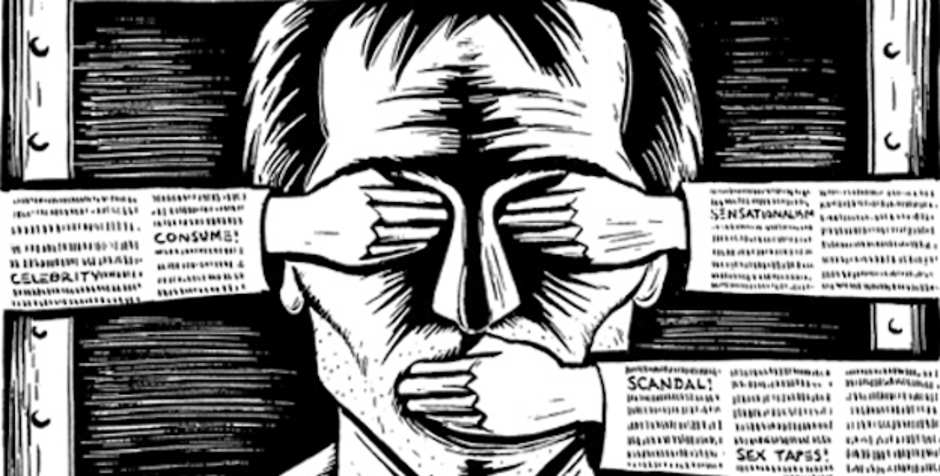Grégor Puppinck, PHD in Law, is the Director of the European Centre for Law and Justice (ECLJ). He is a Member of the OSCE Panel of Experts on Freedom of Religion or Belief. He wrote a study on Conscientious Objection and Human Rights, A Systematic Analysis (2017).
The facts. In Austria, at a FPÖ conference entitled “Basic Knowledge of Islam”, the lecturer and head of the FPÖ was convicted for saying about Muhammad’s marriage to a six-year-old girl and of his sexual consummation at the age of 9: “What do we call it, if it is not paedophilia?” She wanted to warn about the practice of marriage of minors in Islam, following the example of Muhammad. While in 2012 she challenged this conviction before the European Court of Human Rights (ECHR), it confirmed the decision of the Austrian judges in a judgment released Thursday, 25 October. The ECLJ had intervened in this case to defend the applicant.
FIGAROVOX.- The European Court of Human Rights has just confirmed the conviction of an Austrian woman who spoke during a meeting about the "pedophilia" of Muhammad. What is the reason for this conviction?
Grégor PUPPINCK.- The only true reason for this decision is the fear of Muslims. The Court expressly says so: the Austrian authorities were right to condemn these remarks in order to preserve “religious peace” and “mutual tolerance” in the Austrian society. According to the Court, states now have, and this is new, “the obligation […] of ensuring the peaceful co‑existence of all religions and those not belonging to a religious group by ensuring mutual tolerance”.
The Court develops several arguments to support its conclusion.
First, it judges the speaker’s very intention, and condemns her by considering that she did not seek so much to inform the public as to “disparage” Muhammad and to demonstrate “he was not a worthy subject of worship” and consequently to incite violence. Thus, to denigrate Muhammad is not protected by the freedom of expression: it would be necessary to speak about him with respect and good intentions!
The Court went on to find - unbelievably - that these words were not an expression of fact but a judgment of personal and hostile value, because the speaker would not have placed the facts in their historical context, nor did it say that Muhammad’s first wife was much older than him. Therefore, she would have “generalized” the pedophilia of Muhammad maliciously. For the Court, then, the speaker was in bad faith, and “legitimately”, that Muslims could have felt “offended” by these statements and that the Austrian Courts condemned them.
I believe this is a very serious decision indeed. First, because it resigns itself to the intolerance and even the violence of Muslims in the face of criticism, and renounces the firm defense of freedom of expression over Islam. In fact, it is the very violence of Muslims that would justify and demand that their beliefs be more protected against criticism.
More profoundly, this decision is also very serious because it puts the objectives of “mutual tolerance” and “peaceful co-existence” on freedom of thought and expression in religious matters. It allows to muzzle the criticism of Islam in the name of living-together. This goes against Western modernity, which requires, on the contrary, to subject Islam to historical criticism, without fear of upsetting the beliefs of its followers and even of provoking tensions.
The ECHR would have supported the condemnation of the Charlie Hebdo cartoons.
But to esteem and protect critical debate and controversy, one must still believe in truth and virtue. This is unfortunately not the case of this decision which is purely relativistic. To transform tolerance and coexistence into values and objectives in themselves is an abdication of the mind. The European society must not renounce to be founded on justice and virtue which are, by definition, uncompromising.
Ultimately, the logic of coexistence and living-together rests on the absurd dogma of the equality of religions. For my part, I am convinced that it is urgent to destroy this dogma, to criticize and compare religions in relation to their contribution to the good of humanity. As for freedom of expression, I think that only the dissemination of obscenities gratuitously offensive and useless to the debate as well as the remarks inciting to immediate violence can be restricted. Anything else - especially when it is based on real facts - should be protected under freedom of expression.
Is it not surprising to see the ECHR maintain a "crime of blasphemy" even though, throughout Europe, it tends to disappear? The Irish are for example about to remove it from their Constitution.
The decision of the ECHR would have justified the conviction of the cartoons of Charlie Hebdo, but also Voltaire, Ernest Renan or Auguste Comte. The European Court of Human Rights is not really Charlie... (cf the expression “I am Charlie” following the islamic attack in the satirical newspaper Charlie Hebdo in January 2015)
Yes, it is true that since 2009, the international and European authorities have all declared themselves in favour of abolishing the crime of blasphemy. That is why it was removed from the local Alsatian law in 2016, and that the Irish are about to do the same soon. This decision from Strasbourg goes against the flow.
The Court has taken the opposite position in granting protection to blasphemies against the Christian religion.
In fact, this trend is a defensive reaction to the UN’s offensive by the Organization of the Islamic Conference to create in international law a crime of blasphemy under the name of “defamation of Islam”. There has thus been a conflict in international law between the Muslim and Western conceptions of freedom of expression in religious matters. The court, in this case, opted for the Muslim conception ... in accordance with the Sharia law.
In short, the ECHR defends those who blaspheme against Christianity, but condemns those who blaspheme against Islam...
One has but to note that in two recent judgments the Court has taken the opposite position in granting protection to blasphemies against the Christian religion. These were not historical debates, but mere commercial advertisements and political activism.
First there was the case of advertisements representing Christ and the Virgin Mary as tattooed and lascivious junkies. The Strasbourg Court did not admit the condemnation of these advertisements, even though they shocked for free, for a single commercial purpose. It condemned Lithuania.
Then there was the “Pussy Riot” case, this famous group of punk agitators who had been heavily condemned in Russia for organizing a wild concert in the choir of the Orthodox Cathedral of Moscow. Here again, the ECHR protected their freedom of expression, recognizing at most that a reaction to the violation of ordinary rules of conduct in a place of worship could have been justified.
One can scarcely understand the divergence of approaches of the Court between these different cases.
Elsewhere in the world, a young woman, Asia Bibi, has been sentenced to death for blasphemy. What are human rights defenders doing?
The ECLJ has an office in Pakistan bravely defending there the many persecuted Christians, such as Asia Bibi. In the face of Islam, we also need courageous defenders of human rights in Europe. This is not the signal given by the ECHR with this decision ... I hope that this case will be retried, on appeal, before the Grand Chamber of the European Court, and that it will then be able to show the courage that the current circumstances require.
Translation by BMG















